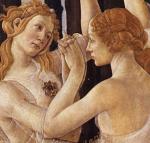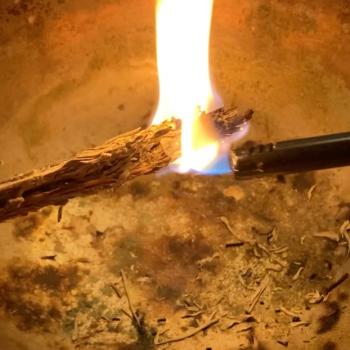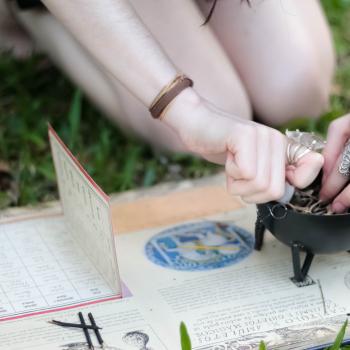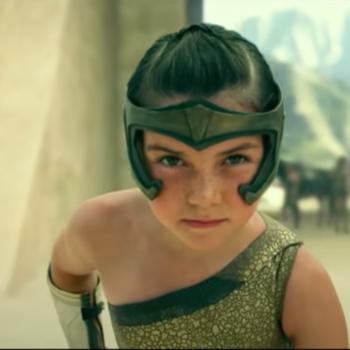The day after summer solstice celebrations, I heard someone sigh. “It’s all downhill from here!” he said. “It’s just going to get darker and darker!” Despite the veracity in his statement, there’s still a lot to celebrate and be grateful for when Lughnasa rolls around.
I admit, I’ve rarely celebrated Lughnasa. Summer solstice celebrations seem to eclipse everything afterward for quite some time. By the time July 31 / August 1 arrives, I shake my head in wonder. Has the summer solstice really been over for so long? Has it really been one turn of the wheel since I danced with wild abandon and yipped like a wolf at the dawning light of solstice day?
By now, I’m acutely aware of losing sunlight every week. The solar-powered faery lights on my back porch turn on sooner every night. It’s suddenly dark when it wasn’t last week. But even with the dying sunlight, the warmth of the sun grows stronger, and with the remaining sunlight and warmth comes the first harvest.
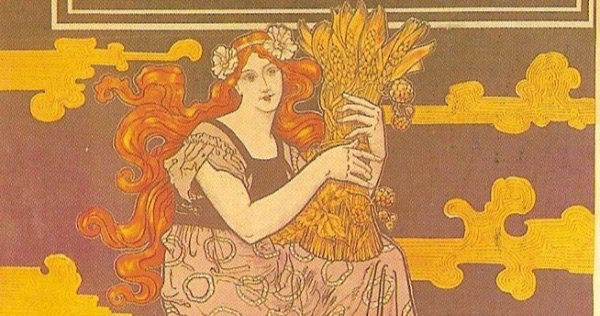
This Lughnasa is a particularly significant time for me. For the first time since 2000, I live in a sunny place, where I can grow my own herbs and vegetables. Just after Beltane, I planted a garden in the backyard of my new house, in a flurry of not-having-enough-time-to-do-anything. As I shoveled compost and buried the baby plants in the dirt, I hoped for the best, but expected stunted stalks, blighted leaves, and a reduced harvest, just like every other time I’d tried to plant a garden in the past sixteen years. (Three cherry tomatoes does not a harvest make.)
Even as I remembered those poor harvests from the past, I hoped for vegetables. I conjured the aromatic green scent of a fresh cherry tomato, and could almost taste the acidity and sweetness of it on my tongue. These were my thoughts and prayers as I sprinkled water over my garden.
I wonder if our agrarian ancestors had the same feelings when they planted their crops. It’s possible they had little to work with except for seeds, blind hope, and faith that Mother Earth would provide. The land had to produce food. If she didn’t, there’d be famine, starvation, death . . .
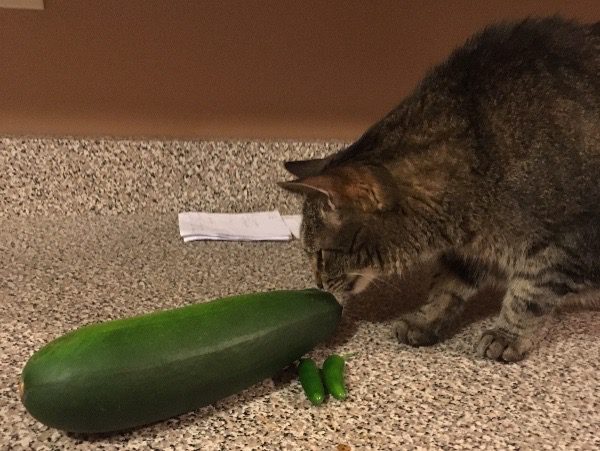
But look at us now. We’re all here – we’re all alive. The earth did provide for our ancestors. She gave them life, just as she gives us life today.
Contrary to my fears and lowered expectations, my crops did not fail. In fact, some of the tomato plants are now taller than I am! They’re heavy with green and yellow tomatoes. Sometimes, I have to reset the tomato cages because the plants are so plentiful. Sleek jade zucchinis grow like eager balloons filling with air beneath elephant ear-like leaves, and my jalapeno plants have more peppers than I can handle at the moment. Even my herbs, planted hastily in the somewhat shady area, are growing strong stalks and fragrant, green leaves that perfume the air.
Last week, I harvested an enormous zucchini, four cherry tomatoes, eight hot peppers, and several springs of herbs from my garden. This is what Lughnasa is all about – the first harvest. The bounty from our hard work, hopes, and faith. The proof that hard work, hope, and trust work out in the end, even if it takes sixteen years to get there.

With my first harvest (and a little help from the grocery), I made a huge pot of beans and rice. I brought some to my friends who just birthed a baby boy, and watched with adoration as the tiny newborn breast-fed from his mama.
Even though Lughnasa means we’re one step closer to those darker days, acknowledging this turn of the wheel brings us closer to to our goals. I’m grateful to reap the benefits of my hard work and to see the fruits of my friends’ labor as well. Happy harvesting.


